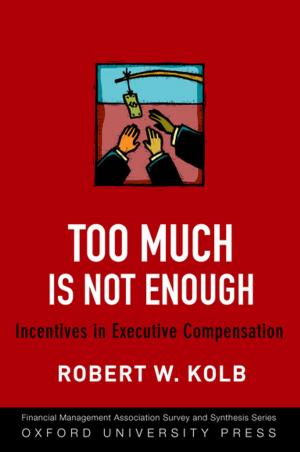Moral Skepticisms
Nonfiction, Religion & Spirituality, Philosophy, Epistemology, Ethics & Moral Philosophy| Author: | Walter Sinnott-Armstrong | ISBN: | 9780199884889 |
| Publisher: | Oxford University Press | Publication: | January 26, 2006 |
| Imprint: | Oxford University Press | Language: | English |
| Author: | Walter Sinnott-Armstrong |
| ISBN: | 9780199884889 |
| Publisher: | Oxford University Press |
| Publication: | January 26, 2006 |
| Imprint: | Oxford University Press |
| Language: | English |
All contentious moral issues--from gay marriage to abortion and affirmative action--raise difficult questions about the justification of moral beliefs. How can we be justified in holding on to our own moral beliefs while recognizing that other intelligent people feel quite differently and that many moral beliefs are distorted by self-interest and by corrupt cultures? Even when almost everyone agrees--e.g. that experimental surgery without consent is immoral--can we know that such beliefs are true? If so, how? These profound questions lead to fundamental issues about the nature of morality, language, metaphysics, justification, and knowledge. They also have tremendous practical importance in handling controversial moral questions in health care ethics, politics, law, and education. Sinnott-Armstrong here provides an extensive overview of these difficult subjects, looking at a wide variety of questions, including: Are any moral beliefs true? Are any justified? What is justified belief? The second half of the book explores various moral theories that have grappled with these issues, such as naturalism, normativism, intuitionism, and coherentism, all of which are attempts to answer moral skepticism. Sinnott-Armstrong argues that all these approaches fail to rule out moral nihilism--the view that nothing is really morally wrong or right, bad or good. Then he develops his own novel theory,--"moderate Pyrrhonian moral skepticism"--which concludes that some moral beliefs can be justified out of a modest contrast class but no moral beliefs can be justified out of an extreme contrast class. While explaining this original position and criticizing alternatives, Sinnott-Armstrong provides a wide-ranging survey of the epistemology of moral beliefs.
All contentious moral issues--from gay marriage to abortion and affirmative action--raise difficult questions about the justification of moral beliefs. How can we be justified in holding on to our own moral beliefs while recognizing that other intelligent people feel quite differently and that many moral beliefs are distorted by self-interest and by corrupt cultures? Even when almost everyone agrees--e.g. that experimental surgery without consent is immoral--can we know that such beliefs are true? If so, how? These profound questions lead to fundamental issues about the nature of morality, language, metaphysics, justification, and knowledge. They also have tremendous practical importance in handling controversial moral questions in health care ethics, politics, law, and education. Sinnott-Armstrong here provides an extensive overview of these difficult subjects, looking at a wide variety of questions, including: Are any moral beliefs true? Are any justified? What is justified belief? The second half of the book explores various moral theories that have grappled with these issues, such as naturalism, normativism, intuitionism, and coherentism, all of which are attempts to answer moral skepticism. Sinnott-Armstrong argues that all these approaches fail to rule out moral nihilism--the view that nothing is really morally wrong or right, bad or good. Then he develops his own novel theory,--"moderate Pyrrhonian moral skepticism"--which concludes that some moral beliefs can be justified out of a modest contrast class but no moral beliefs can be justified out of an extreme contrast class. While explaining this original position and criticizing alternatives, Sinnott-Armstrong provides a wide-ranging survey of the epistemology of moral beliefs.















